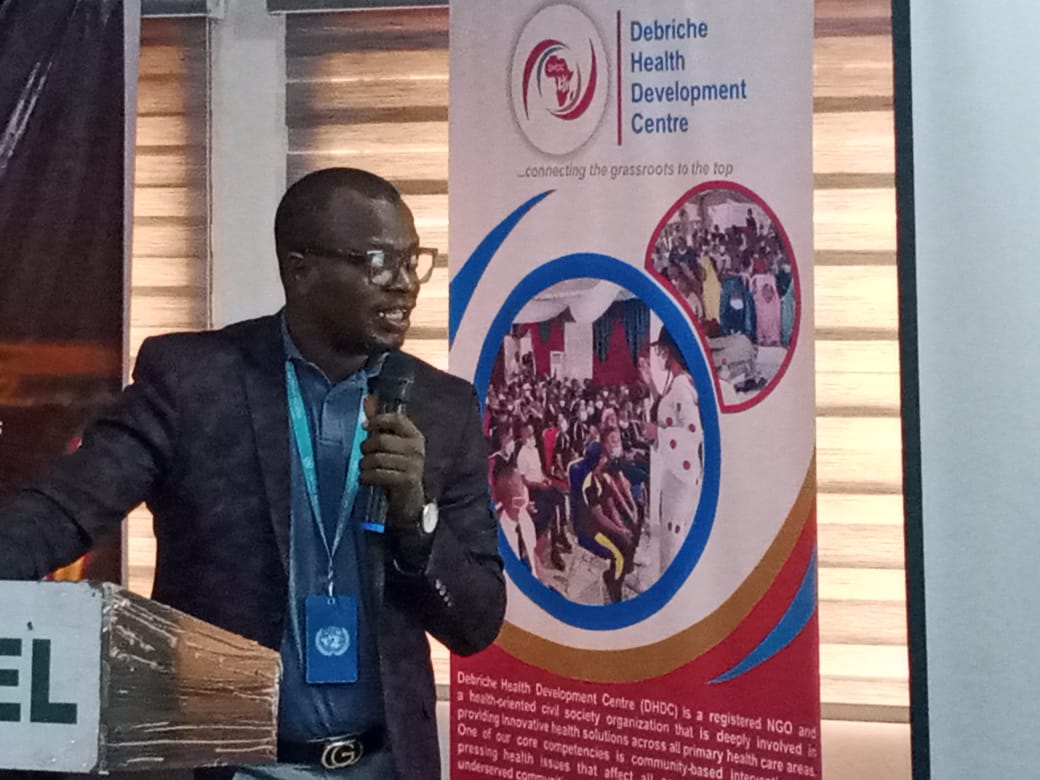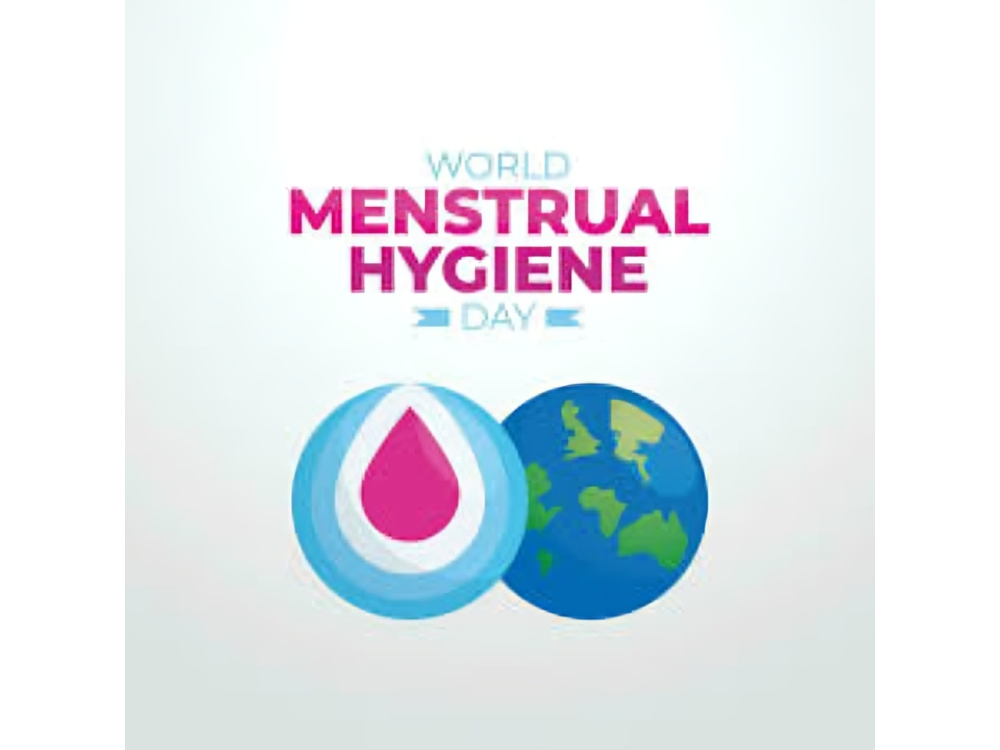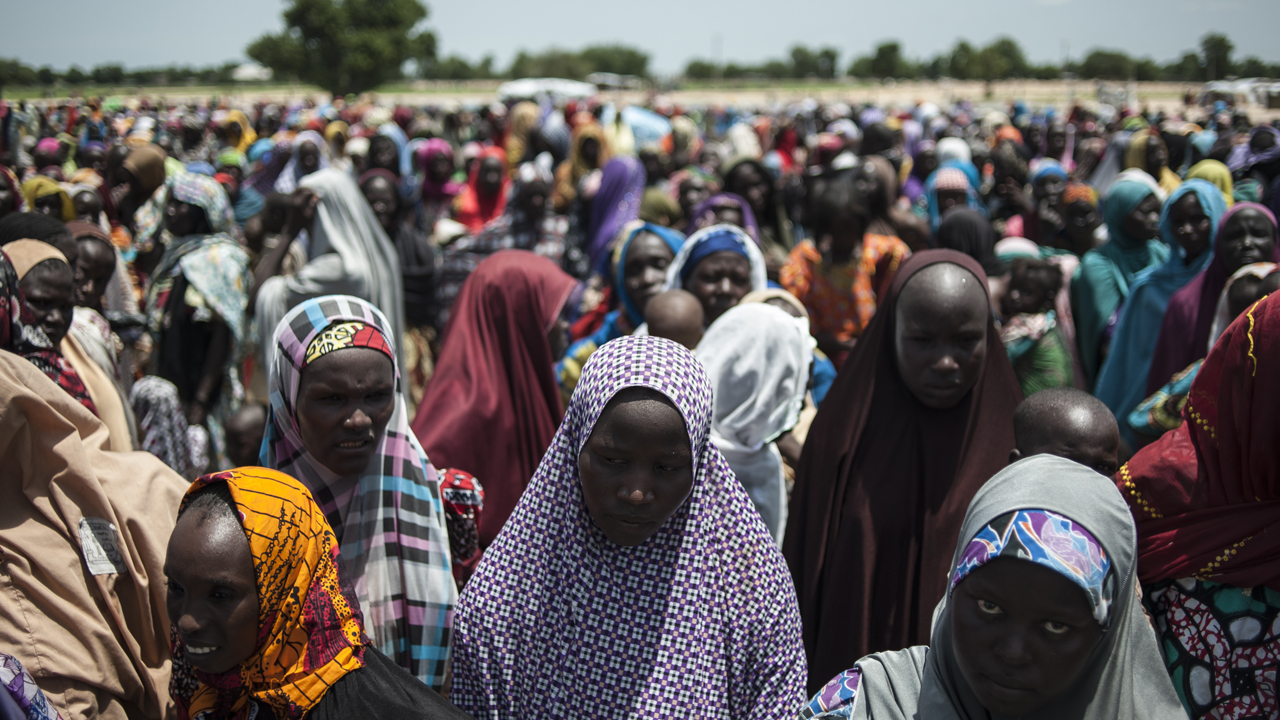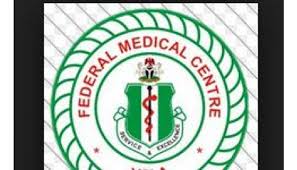Health
Stakeholders Call for More Youths Inclusion in the Fight Against TB

By Laide Akinboade, Abuja
Stakeholders in the Health Sector, at the weekend called for more youths engagement in the fight against Tuberculosis, TB, challenges in Nigeria.
The theme of the workshop is ‘Empowering Young Champions to End TB:Flag off of the one minute silence for TB campaign’.
Among those who spoke at Debriche Health Development Center, DHDC 2024 volunteers workshop with support from Stop TB Partnership Geneva, in Abuja included, Director of Public Health, Ministry of Health, Dr.
Chukwuma Anyaike, Chief Austin Obeifuna, Vice Board Chair, Stop T partnership, Geneva, Dr. Amos Omoniyi, National professional officer, World Health Organization, WHO, Nigeria, Dr. Jemila Amin, Head of ACSM unit, National Tuberculosis and Leprosy, and Buruli Ulcer Control Program, Nigeria, etc, in Abuja.Dr. Omoniyi, of WHO, who was represented by Dr Emmanuel Opeyemi, a national professional officer, WHO, in his presentation, titled ‘Role of Young Champions in advocacy, communication,social mobilization to end TB in Nigeria’, lamented the fact that in Nigeria, people die of TB in every 5 minutes, Nigeria is first in Africa .
He said 285,561, (59.6%), are notified our of 479,000 cases, 19,989 (26%), children are notified our of reported cases.
Nigeria among 8 countries that accounted for two third of global TB case.
According to him, “TB is a concerning disease and 1 person is infected every minute.TB is number one killer in Nigeria today oner person die of TB every five minutes , that means in 1 hour about 20 person have gone, on 24 hours
about 480 have died,and this is a disease that has been with us for over 100 years . TB is driven my mal nutrition and HIV, malnutrition is an open secret because Nigeria is poverty capital in the world.
“Only 30% of Nigerians are aware of TB, in terms of right information. 71% of TB patients have to pay for one TB treatment service. The youth sub group are very important in addressing the challenges of TB”.
The WHO professional officer said, even though Nigeria has achieved some feats in its fight against TB, “The youths engagement to fight TB has been sub optima, prior to now, a lot of efforts has on in order to addressing the challenges of TB.
In the past there has been involvement of lots of stakeholders, cross section of the society in addressing the challenges of TB but the involvement of youths who constitute the larger population in the society, is still very sub-optimal and that is why WHO through it ‘one plus one’ youth initiative’ is pushing for more youths involvement and more engagement to be able to address TB challenge.
“Reach one, each one’ , ‘Reach one Teach one’, ‘Teach one for each one’ , initiative. The initiative is a gateway to create the needed social supports (this address issues around discrimination and stigmatization), awareness and mobilization, (this is about been able to reach out to the needed millions of youths that are needed to create awareness)”.
Bethrand Odume is the Executive Director of KNCV Tuberculosis Foundation Nigeria, said it imperative to address the issue of stigma especially in the rural area, through the use of youths in the communities.
“stigma has actually become a key barrier to access to TB care. We know that most of us come from the village. We know that in the village, people actually are not yet informed on the key fundamentals around TB disease. Some feel that it is not curable, some feel
it’s related to witches and witch craft and we all know it’s a preventable disease.
“I think reaching out to people with the right information and empowering them would actually be a major way we will be able to prevent TB sigma. A lot of the youth now are on social media, which is why getting social media influencers, creating some of these apps that would impact on people and can share their opinions and some of these barriers. Stakeholders will be able to address some of these barriers that they face daily in accessing TB care”.
The Executive Director of DHDC,Deborah Ikeh, said her organization is trying to use the youths
their voices, their platforms to mobilise the needed awareness and the needed attention for TB.
She said, “We all know that lot of people do not know that this disease is treatable, curable and preventable. We heard during the presentation that only 30% of people are aware of TB signs and symptoms. This is a huge challenge. And that is why, mobilising young people and empowering them as champions to be advocates is very important because we want to leverage the platform of the young people, the voices, the movement of young people to be able to speak on these issues. For example today, we know that almost everyone is on social media”.
Dr Jamila, from Ministry of Health, said in order to fight the disease effectively the Federal Government, has made
TB tests, TB treatment for six months all free.
“So you can walk into any government facility and get tested and get treated free of charge without having to spend a penny from your pocket” she noted.
Health
Stakeholders Call for Better Menstrual Hygiene To Boost Health

Stakeholders have stressed the need for increased awareness and improved practices around menstrual hygiene, particularly to support better health outcomes and dignity for girls in underserved communities.
They made the call on Wednesday in Abuja ahead of the 2025 Menstrual Hygiene Day, commemorated globally every May 28 to address inequalities in menstrual health and hygiene.
The event was organised by Tabitha Cumi Foundation (TCF) under its Always Keeping Girls in School (AKGIS) project, with support from Charities Aid Foundation (CAF America).
Mrs Tayo Erinle, Executive Director of TCF, said menstrual hygiene remained a critical yet often overlooked aspect of reproductive health, especially among adolescent girls.
“Many girls live in households where no one provides sanitary pads or pays attention to that part of their lives.
“It happens monthly, and every girl deserves dignity and support,” she said.
Erinle added that more than 1,600 marginalised girls across 32 junior secondary schools in the FCT, Lagos, and Benue states were empowered through puberty education and menstrual hygiene management under the AKGIS project.
She said beneficiaries also received a one-year supply of Always sanitary pads and emergency kits.
“The project has boosted the girls’ confidence.
“Menstruation was once shrouded in secrecy, stigma, and confusion for many. Now, with access to correct information and education, they feel empowered,” she added.
Dr Adedolapo Fasawe, Mandate Secretary for the Health Services and Environment Secretariat, emphasised the importance of educating youths on reproductive health.
Represented by Dr Ruqayya Wamakko, Executive Secretary of the FCT Primary Health Care Board, she called for more sensitisation efforts to encourage young people to use health services in primary health centres.
“We give health talks, visit schools, form school clubs, and teach students how to care for themselves, maintain personal and menstrual hygiene, and stay safe,” she noted.
Mrs Nwakonye Onyirechi, Assistant Chief Investigative Officer in the Women and Children Department of the National Human Rights Commission (NHRC), reiterated the commission’s commitment to protecting the rights of the girl child.
“We go to schools to sensitise girls to their rights and encourage them to speak up when their rights are violated,” she said.
Dr Safiya Tamanuwa, Deputy Director of the Placement and Gender Unit at the Universal Basic Education Commission (UBEC), commended TCF for its support toward improving the health and well-being of schoolgirls.
Highlights of the event included the distribution of sanitary pads and kits, a literary presentation, and expert-led health talks.(NAN)
Health
Group urges Nigerians to embrace healthy habits to prevent diseases

The Society of Lifestyle Medicine of Nigeria (SOLONg) has advised Nigerians to embrace healthy preventive lifestyle habits to prevent the root causes of chronic and lifestyle-related diseases.
The President of SOLONg, Dr Moyosore Makinde, gave the advice in an interview in commemoration of the “Global Lifestyle Medicine Week” on Tuesday in Lagos.
NAN reports that the Global Lifestyle Medicine Week, taking place from May 18 to May 24, 2025, has the theme “Celebrating Healthy Habits: Inspire Change with D.
R.E.A.M.S.”Makinde, also an International Board-certified Lifestyle Medicine Physician, said the week was dedicated to raising awareness about the transformative power of lifestyle medicine in improving health outcomes and reducing the burden of chronic diseases worldwide.
According to her, lifestyle medicine empowers people to live healthier, happier and longer lives.
She explained that the D.R.E.A.M.S. acronym highlighted the six key pillars of lifestyle medicine that guide individuals toward healthier lives namely: Predominantly plant-based Diets, positive Relationships or social connections, Exercise, Avoidance of toxic substances, Mental wellness and stress management, and restorative Sleep.
She said that these pillars had been proven by scientific research to not only manage and prevent chronic diseases like coronary heart disease, diabetes, dementia and Alzheimer’s but also to promote a more sustainable and harmonious relationship with ourselves and with our planet.
Makinde added that it contributed to planetary health and the stability of our ecosystem.
“SOLONg is proud to announce its participation in Global Lifestyle Medicine Week, taking place from May 18 to May 24, 2025.
“Scientific studies, including numerous randomised clinical trials and longitudinal studies, have consistently shown the remarkable benefits of lifestyle interventions in reducing the incidence of chronic conditions.
“Additionally, these healthy habits play a pivotal role in strengthening resilience against infectious diseases.
“The ongoing impact of several pandemics has underscored the importance of adopting healthy behaviours, as poor lifestyle choices have been associated with worse disease severity and slower recovery times,” she said.
Contributing, the General Secretary of SOLONg, Dr Chika Anozie, said that Global Lifestyle Medicine Week aimed to foster a community of like-minded individuals and healthcare professionals committed to lifestyle medicine.
Anozie, also a Family Physician, said that SOLONg would organise various activities to mark the week, including a Webinars and educational workshops on lifestyle medicine topics.
She added that there would be courtesy visits and community outreach programmes promoting healthy habits, as well as social media campaigns sharing lifestyle medicine tips and resources.
“As we observe Global Lifestyle Medicine Week, it is clear that the need for Lifestyle Medicine is greater than ever.
“This is a clarion call for the government to create policies that promote healthy lifestyle practices while restricting behaviours that contribute to disease.
“We urge medical institutions to prioritise the accreditation of Lifestyle Medicine programs at both undergraduate and postgraduate levels.
“It is equally important that health professionals receive the proper training to effectively communicate these life-saving messages to the public.
“The Society encourages individuals to embrace the principles of healthy living, which are not only lifechanging but also long-lasting,” she said.(NAN)
Health
NAFDAC Clarifies Sachet Alcohol Ban Timeline

The National Agency for Food and Drug Administration and Control (NAFDAC) has clarified its stance regarding the nationwide ban on sachet alcohol.
Mr Kenneth Azikiwe, Director of the FCT Directorate of the agency, in an interview on Monday in Abuja that the temporary lifting of the ban was only valid until Dec.
31, 2025.He emphasised that the recent ministerial lifting of the ban was not permanent and urged the public to disregard misinformation suggesting that the government had permanently lifted the restriction.
“There is a ministerial lifting on the ban of sachet alcohol, but it is only temporary and will be reviewed by Dec. 31, 2025.
“After this date, the full enforcement of the ban will commence.
“The minister granted this temporary relief to allow manufacturers and regulators time to collaborate and ensure a more structured and effective implementation of the ban,” Azikiwe stated.”
He highlighted NAFDAC’s ongoing efforts to sensitise the public across the country, noting that awareness campaigns had reached every state.
“We have sensitised distributors, and we’ve emphasised that alcohol should not be sold to individuals under the age of 18, which is also clearly indicated on product labels,” he added.
Azikiwe also commended the Distillers and Beverages Association of Nigeria (DIBAN) for supporting the awareness drive.
He reassured the public that NAFDAC remained fully committed to regulating alcohol consumption and reiterated that sachet alcohol products containing less than 200 milliliters would be phased out after Dec. 2025.(NAN)



















